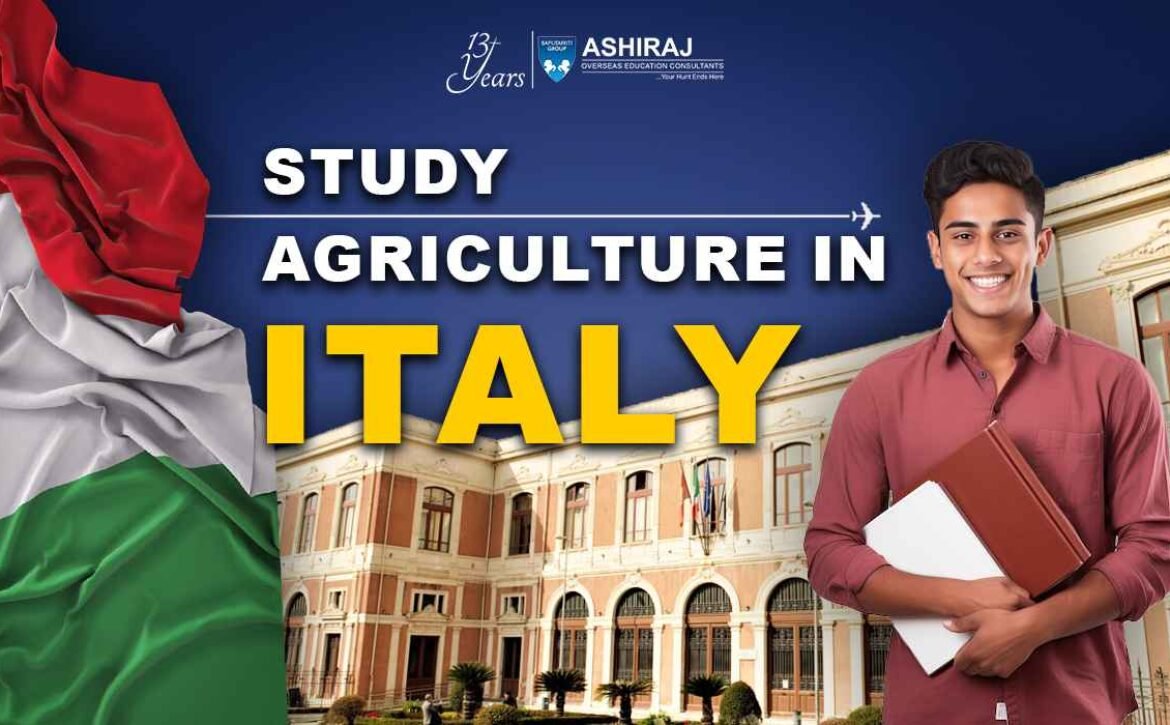
Agriculture in Italy
Agriculture in Italy is deeply entrenched in the nation’s cultural heritage and economy, reflecting a rich tapestry of tradition and innovation. With a diverse landscape ranging from fertile plains to rugged mountains, Italy boasts a remarkable variety of agricultural products. From the vineyards of Tuscany producing renowned wines to the olive groves of Puglia yielding premium olive oil, agriculture forms an integral part of Italy’s gastronomic identity. Additionally, regions like Emilia-Romagna are famed for their cheese production, while Sicily is known for its citrus fruits and almonds. The agricultural sector in Italy is not only significant for its contribution to the national economy but also for its role in preserving traditional methods and promoting sustainable practices.
Agriculture in Italy is a multifaceted sector that has evolved over centuries, blending age-old techniques with modern technologies to meet the demands of a global market. Despite facing challenges such as land fragmentation and climate change, Italian farmers have demonstrated resilience and adaptability. Investments in research and development have led to advancements in precision farming, irrigation systems, and organic production methods. Moreover, initiatives promoting agritourism have emerged, allowing visitors to engage firsthand with Italy’s rural heritage while providing supplementary income to farmers. As Italy continues to navigate the complexities of a modern agricultural landscape, preserving its cultural legacy and environmental sustainability remain paramount.
Why to Study Agriculture in Italy?
- Cultural Heritage: Italy’s agriculture is deeply rooted in its rich cultural heritage, offering students a unique opportunity to learn traditional farming practices that have been passed down through generations.
- Diverse Landscape: From the fertile plains of the Po Valley to the sun-drenched vineyards of Sicily, Italy’s diverse landscape provides a wide range of agricultural environments for students to explore and study.
- Renowned Products: Italy is famous for its high-quality agricultural products, including wine, olive oil, cheese, and pasta. Studying agriculture in Italy allows students to gain firsthand knowledge of the production processes behind these renowned goods.
- Cutting-edge Research: Italian universities and research institutions are at the forefront of agricultural innovation, conducting groundbreaking research in areas such as sustainable farming practices, biotechnology, and precision agriculture.
- Internship Opportunities: Many agricultural programs in Italy offer internship placements on farms, vineyards, and research facilities, giving students valuable hands-on experience in the field.
- International Perspective: Italy’s strategic location in the heart of Europe offers students an international perspective on agriculture, with opportunities to learn from experts and peers from around the world.
- Career Opportunities: Graduates of agricultural programs in Italy are well-positioned for careers in various sectors, including farming, agribusiness, research, and government agencies.
Studying agriculture in Italy not only provides students with a comprehensive education in agricultural science but also immerses them in a vibrant cultural and culinary landscape that is truly unparalleled.
Top Universities to Study Agriculture in Italy
University | QS World University Ranking 2023 | Type of University | Average Annual Fees | Programs Offered |
University of Bologna | 80 | Public | €3,000 – €6,000 | Agricultural Sciences, Food Technology |
University of Milan | 115 | Public | €2,000 – €4,000 | Agronomy, Viticulture, Agricultural Economics |
University of Padua | 150 | Public | €2,500 – €5,000 | Horticulture, Crop Science, Agroecology |
University of Florence | 180 | Public | €3,000 – €5,500 | Agricultural Engineering, Sustainable Agriculture |
Sant’Anna School of Advanced Studies | 200 | Public | €4,000 – €8,000 | Agribusiness Management, Agricultural Policy |
- University of Bologna: With a QS World University Ranking of 80, the University of Bologna offers programs in Agricultural Sciences and Food Technology at an average annual fee of €3,000 – €6,000.
- University of Milan: Ranked at 115, the University of Milan provides courses in Agronomy, Viticulture, and Agricultural Economics with fees ranging from €2,000 to €4,000 per year.
- University of Padua: Ranked 150, the University of Padua offers programs in Horticulture, Crop Science, and Agroecology, with average annual fees of €2,500 – €5,000.
- University of Florence: Ranked 180, the University of Florence provides courses in Agricultural Engineering and Sustainable Agriculture, with fees ranging from €3,000 to €5,500 per year.
- Sant’Anna School of Advanced Studies: Ranked 200, the Sant’Anna School offers programs in Agribusiness Management and Agricultural Policy at an average annual fee of €4,000 – €8,000.
Course Curriculum for Agriculture in Italy
- Core Subjects: The curriculum typically covers core subjects such as Agronomy, Horticulture, and Agricultural Economics, providing students with a comprehensive understanding of crop production, plant sciences, and economic principles related to agriculture in Italy.
- Specialized Tracks: Students may have the option to specialize in areas such as Viticulture, Olive Cultivation, or Sustainable Agriculture, allowing them to focus their studies on specific aspects of Italy’s diverse agricultural sector.
- Practical Training: Hands-on training is emphasized, with opportunities for fieldwork, internships on farms or research institutions, and laboratory experiments to complement theoretical learning.
- Technology Integration: The integration of technology in agriculture is a key component, with courses on Precision Farming, Agricultural Machinery, and Remote Sensing techniques, reflecting Italy’s commitment to innovation in agriculture.
- Environmental Sustainability: Courses on Agroecology, Organic Farming, and Environmental Management equip students with the knowledge and skills to address sustainability challenges facing agriculture in Italy, such as soil degradation and water conservation.
- Business and Management: Understanding the business aspect of agriculture is essential, with courses in Agribusiness Management, Agricultural Policy, and Marketing enabling students to navigate the economic and regulatory landscape of Italy’s agricultural industry.
- Research Projects: Students may have the opportunity to undertake research projects, contributing to advancements in agricultural science and addressing real-world challenges faced by farmers in Italy.
Eligibility Criteria & Admission Requirements for MS in Agriculture in Italy
- Language Proficiency: Applicants must demonstrate proficiency in English or Italian through standardized tests such as IELTS or TOEFL. For IELTS, a minimum score of 6.5 is typically required, while for TOEFL, a score of 80 or above is commonly accepted.
- Standardized Tests: Many universities in Italy require applicants to submit scores from standardized tests like GRE or GMAT. For GRE, a competitive score ranges from 155-160 in Quantitative Reasoning and 155-160 in Verbal Reasoning, while for GMAT, a score of around 600-700 is often expected.
- Educational Qualifications: Prospective students must hold a bachelor’s degree in a relevant field such as Agriculture, Biology, or Environmental Science, with a strong academic record.
- Passport & Student Visa: International applicants need a valid passport and must obtain a student visa to study in Italy. This involves submitting necessary documents to the Italian embassy or consulate in their home country.
- Academic Certificates: Applicants must provide certified copies of academic transcripts, diplomas, and certificates to verify their educational qualifications.
- Work Experience: While not always mandatory, some programs may require or prefer applicants to have relevant work experience in the field of agriculture, either through internships, research projects, or professional employment.
IELTS, TOEFL, GRE, and GMAT Scores Table:
Test | Minimum Score |
IELTS | 6.5 |
TOEFL | 80 |
GRE | 155-160 (Quantitative), 155-160 (Verbal) |
GMAT | 600-700 |
Meeting these eligibility criteria ensures that prospective students are adequately prepared for the rigors of studying agriculture in Italy, fostering a conducive learning environment for academic and professional growth.
Documents Required for Studying Agriculture in Italy
- Passport: A valid passport is essential for international students applying to study Agriculture in Italy. Ensure that it is up-to-date and will remain valid for the duration of your stay.
- Letters of Recommendation (LOR): Two letters of recommendation are typically required. These should be from academic or professional references who can attest to your qualifications and suitability for the program.
- Statement of Purpose (SOP): An SOP is a critical document where you explain your interest in studying Agriculture in Italy, your career goals, and how the program aligns with your aspirations.
- Curriculum Vitae (CV): A detailed CV outlining your educational background, work experience, and any relevant skills or achievements is necessary to provide a comprehensive overview of your qualifications.
- Official High School Transcripts and Certificates: Certified copies of your high school transcripts and certificates are required to verify your academic history and qualifications.
- Work Experience Certificate: If applicable, provide certificates or letters that verify any relevant work experience in the field of agriculture, which can strengthen your application.
- Proof of Financial Resources: Documentation proving you have sufficient financial resources to cover tuition fees and living expenses during your stay in Italy is required. This could include bank statements, scholarship letters, or financial affidavits.
Meeting these documentation requirements is crucial for a successful application to study Agriculture in Italy, ensuring you are well-prepared to embark on your academic journey.
Admission Process for Agriculture in Italy
- Research Programs: Begin by researching various universities and programs offering Agriculture in Italy. Identify the ones that align with your academic and career goals.
- Check Eligibility: Review the eligibility criteria for each program, including academic qualifications, language proficiency requirements (IELTS or TOEFL), and standardized test scores (GRE or GMAT).
- Prepare Documents: Gather all necessary documents, such as your passport, official high school transcripts, academic certificates, work experience certificates, two letters of recommendation (LOR), a statement of purpose (SOP), a curriculum vitae (CV), and proof of financial resources.
- Submit Application: Complete the online application form for each university. Ensure that all required documents are uploaded and the application fee is paid, if applicable.
- Language Proficiency Test: Schedule and take your language proficiency test (IELTS or TOEFL). Ensure that your scores meet the minimum requirements for the programs you are applying to.
- Standardized Tests: Take the GRE or GMAT, if required by the program. Submit your scores to the universities.
- Await Response: After submitting your application, await responses from the universities. You may be called for an interview or additional assessments.
- Receive Offer: Once you receive an offer letter from a university, accept the offer and pay any necessary deposits to secure your place.
- Apply for Visa: Apply for a student visa at the Italian embassy or consulate in your home country. Submit all required documents, including your acceptance letter and proof of financial resources.
- Prepare for Departure: Once your visa is approved, prepare for your move to Italy. Arrange accommodation and familiarize yourself with the university’s orientation program.
Following these steps will help ensure a smooth admission process for studying Agriculture in Italy, paving the way for a successful academic journey.
“Education is the most powerful weapon which you can use to change the world.”
Nelson Mandela
Cost of Agriculture Course in Italy
- Tuition Fees: The average annual tuition fees for studying Agriculture in Italy range from €2,000 to €6,000 at public universities. Fees at private institutions can be higher, ranging from €5,000 to €15,000 per year.
- Living Expenses: Monthly living expenses, including accommodation, food, transportation, and personal expenses, typically range from €700 to €1,200. Major cities like Rome and Milan may have higher costs compared to smaller towns.
- Accommodation: University dormitories and student residences cost between €200 and €500 per month. Renting a private apartment can range from €400 to €800 per month, depending on the location and type of accommodation.
- Food: Monthly food expenses generally range from €150 to €300, with costs varying based on eating habits and dining preferences.
- Transportation: Public transportation costs around €25 to €45 per month with student discounts available for bus, tram, and metro services.
- Health Insurance: International students are required to have health insurance. The cost of student health insurance ranges from €100 to €200 per year.
- Books and Supplies: Budget approximately €100 to €300 per year for textbooks, supplies, and other academic materials.
- Miscellaneous Expenses: Additional costs for entertainment, clothing, and other personal expenses can vary but typically range from €100 to €200 per month.
Understanding these costs helps in planning a budget effectively for studying Agriculture in Italy, ensuring a smooth and financially manageable academic experience.
Scholarships for Agriculture Courses in Italy
Scholarship Name | Amount | Eligibility | Application Deadline |
University of Bologna Study Grants | €11,000 per year | International students enrolled in degree programs | March 31 |
Italian Government Scholarships | Varies | International students with academic excellence | April 30 |
EDISU Piemonte Scholarships | €2,000 – €7,000 | Students enrolled in universities in Piedmont | September 30 |
Bocconi Graduate Merit Awards | Full tuition waiver | High-achieving international students | May 15 |
University of Padua Scholarships | €8,000 per year | International students enrolled in degree programs | February 28 |
- University of Bologna Study Grants: Offering €11,000 per year, this scholarship supports international students enrolled in degree programs, including Agriculture in Italy. Application deadline: March 31.
- Italian Government Scholarships: These scholarships provide varying amounts to international students who demonstrate academic excellence. They are available for various programs, including Agriculture in Italy. Application deadline: April 30.
- EDISU Piemonte Scholarships: With amounts ranging from €2,000 to €7,000, these scholarships are available to students enrolled in universities in the Piedmont region. They support various disciplines, including Agriculture in Italy. Application deadline: September 30.
- Bocconi Graduate Merit Awards: This scholarship offers a full tuition waiver for high-achieving international students pursuing graduate programs, including Agriculture in Italy. Application deadline: May 15.
- University of Padua Scholarships: Providing €8,000 per year, these scholarships are available to international students enrolled in degree programs, including Agriculture in Italy. Application deadline: February 28.
These scholarships significantly reduce the financial burden of studying Agriculture in Italy, making quality education accessible to international students.
Career Opportunities After Agriculture in Italy
Job Profile | Average Salary (Per Year) | Description |
Agronomist | €30,000 – €50,000 | Specializes in crop production and soil management. |
Agricultural Engineer | €35,000 – €55,000 | Designs and improves farming equipment and structures. |
Food Scientist | €28,000 – €45,000 | Works on improving food quality, safety, and processing. |
Farm Manager | €25,000 – €40,000 | Oversees farm operations and manages agricultural production. |
Agricultural Economist | €40,000 – €60,000 | Analyzes economic data to improve agricultural efficiency and profitability. |
Viticulturist | €30,000 – €50,000 | Specializes in grape cultivation and wine production. |
Environmental Consultant | €35,000 – €55,000 | Advises on sustainable practices and environmental regulations. |
Agricultural Inspector | €25,000 – €40,000 | Ensures compliance with agricultural laws and standards. |
- Agronomist: With an average salary ranging from €30,000 to €50,000 per year, agronomists specialize in crop production and soil management, contributing significantly to sustainable agriculture in Italy.
- Agricultural Engineer: Earning between €35,000 and €55,000 annually, agricultural engineers design and improve farming equipment and structures, enhancing efficiency and productivity in the agricultural sector.
- Food Scientist: Food scientists, who earn €28,000 to €45,000 per year, work on improving food quality, safety, and processing methods, playing a crucial role in Italy’s renowned food industry.
- Farm Manager: With an average salary of €25,000 to €40,000, farm managers oversee farm operations and manage agricultural production, ensuring effective and profitable farming practices.
- Agricultural Economist: Agricultural economists, earning €40,000 to €60,000 annually, analyze economic data to improve agricultural efficiency and profitability, impacting policy and business decisions.
- Viticulturist: Specializing in grape cultivation and wine production, viticulturists earn between €30,000 and €50,000 per year, contributing to Italy’s famous wine industry.
- Environmental Consultant: With salaries ranging from €35,000 to €55,000, environmental consultants advise on sustainable practices and environmental regulations, supporting the agricultural sector’s sustainability efforts.
- Agricultural Inspector: Ensuring compliance with agricultural laws and standards, agricultural inspectors earn €25,000 to €40,000 annually, safeguarding the quality and safety of agricultural products in Italy.
Frequently Asked Questions About Agriculture in Italy
Italy is known for producing a variety of crops, including grapes (for wine), olives (for olive oil), tomatoes, wheat, citrus fruits, and vegetables like artichokes and zucchinis.
Yes, there are scholarships available for studying agriculture in Italy, offered by universities, government bodies, and private organizations. These scholarships aim to support students with financial assistance to pursue their agricultural studies.
Some of the main challenges facing agriculture in Italy include land fragmentation, water scarcity, climate change, labor shortages, and competition from imported products. However, ongoing research and innovation are helping to address these challenges.
International students can apply for agricultural programs in Italy by researching universities offering relevant courses, checking admission requirements, preparing required documents, and submitting their applications through the university’s online portal or as per their specified process.
While knowing Italian can be beneficial for daily life and communication, many agricultural programs in Italy are offered in English, especially at the postgraduate level. However, some universities may require proficiency in Italian or offer language courses alongside the program.
Graduates with a degree in agriculture from Italy have a wide range of job prospects, including roles as agronomists, agricultural engineers, farm managers, food scientists, environmental consultants, and more. The agricultural sector in Italy offers diverse career opportunities both domestically and internationally.
Yes, many agricultural programs in Italy offer opportunities for practical experience through internships, fieldwork, and research projects. These experiences provide students with hands-on learning opportunities and valuable industry exposure.
Technology plays a significant role in agricultural education in Italy, with universities integrating modern tools and techniques such as precision farming, remote sensing, and agricultural machinery into their curriculum. This prepares students to adapt to advancements in the agricultural industry.
Yes, international students are allowed to work part-time while studying in Italy, typically up to 20 hours per week during the academic year and full-time during holidays. However, it’s essential to check visa regulations and university policies regarding work permissions.
Italy offers various research opportunities in the field of agriculture, with universities, research institutions, and agricultural companies conducting studies on topics such as sustainable agriculture, crop management, food safety, and agroecology. Students can engage in research projects as part of their academic programs or through internships and collaborations.




